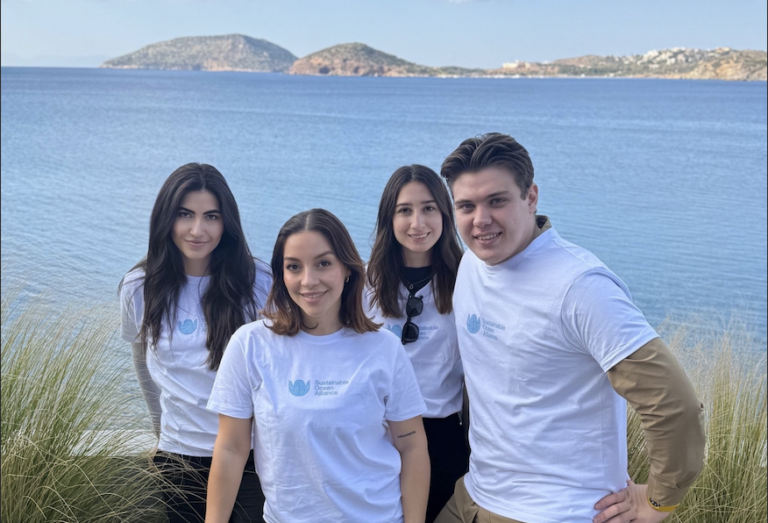Civilized political dialogue, despite the venomous comments and sharp barbs, from all against all, emerged from the six leadership candidates’ presence at the first and last debate before the first round of the PASOK internal party elections on October 6.
From the first to the last minute, the interest was kept undiminished, with the “controversial” issues being raised many times and without circumlocution by the candidates themselves, who appeared determined: on the one hand to shed light on their comparative advantages and on the other hand to hit the “Achilles’ heel” of their main rivals in the studios of public television.
Nikos Androulakis was openly accused by almost every one of the “defective” functioning of the party organs, of decisions that were not discussed in the parliamentary group and of opportunities that were missed, resulting in PASOK not winning its declared goal of second place in the European elections.
Paulos Geroulanos was asked how he could argue that the next president should be a member of parliament when he was not a member of parliament when he first contested the leadership in 2021.
Nadia Giannakopoulou again faced “censure” for raising the leadership issue on the night of the European elections and was asked to answer whether she regretted it.
Anna Diamantopoulou was hammered by Androulakis, Doukas and Katrini for her statements on Tempi, wiretapping, and Mitsotakis’ executive state and replied that they were deliberately distorting her positions.
The Haris strongly criticized for “the two watermelons he wants to fit in one armpit” by claiming the leadership of PASOK as mayor and proposed the model of collective operation and Michalis Katrinis who is in favor of changing the page heard the question of whether being the chairman of the parliamentary group he had sometimes disagreed with Nikos Androulakis, but preferred in the name of unity not to make his objections public.
The three hours of teleconference during which an open yet penetrating dialogue unfolded, however, did not produce a winner or winners; nor any clear loser, in the sense that all six had taken care to avoid “fatal mistakes” and concentrate on using their main “weapons”. However, they exchanged personal barbs and even attacks, they deliberately allowed political innuendos to be broadcast on the viewers’ screens and there was no shortage of improprieties, such as that of Nikos Androulakis who attempted to draw a parallel between Harry Doukas and Erdogan.
It is noteworthy that social media users described the footprint of the green telethon mostly in positive terms; some even pointed out that it taught culture and delivered lessons in dialogue. The two journalists, who also had the “baton” of moderation, managed with sharp and direct questions to “liven up” the dialogue and lead the “contestants” to put their cards on the table.
PASOK officials who attended the debate predicted that it will contribute decisively to attracting the interest of the public and to mass participation in the polls on October 6 and 13, in the first and second rounds respectively.
Nikos Androulakis
The current PASOK leader was invited in his capacity as a candidate to respond to the “objections” regarding his performance. He began speaking in the thematic section on the economy, pulling from his drawer the initiative on red loans, which the second in alphabetical order, Pavlos Georilanos, then rushed to use, asking him why he did not include his proposal on the loan list. Androulakis replied that it was in PASOK’s programme; later Charis Doukas wondered why they did not have the relevant discussion in the parliamentary group before submitting the relevant proposal to parliament.
Androulakis was targeted several times by his fellow candidates; he was hammered by Nadia Giannakopoulou, which continued until the epilogue. He did not spend much time outlining his plan which he will put into action if re-elected. He tried to convince us that the opportunity on the table and on the table in PASOK was not brought by the stork but that it is the product of a hard and persistent struggle. The fact that he described Mr. Doukas as his “favorite” because if he had not insisted on renewal he would not have nominated him and he would not be Mayor now was, as he said, an “impropriety” that was discussed intensely and then among PASOK cadres.
The PASOK leader wanted, and it was evident overall from his presence, to ask for a renewal of the vote of confidence with those who voted for him in 2021. He emphasized the words “political ethics, consistency, and programmatic reason” and, opening up to the wider audience, noted that this was not to bring back some old protagonists or simply to increase PASOK’s seats.
Haris Doukas
Haris Doukas had to face sharp accusations for his decision to challenge the mayoralty and the leadership of PASOK within a short time after his election. He responded by reminding me that this had happened with George Kamini and that he could do it.
He fired shots with his questions to Androulakis; he was in a “constant” substantive, political, and ideological confrontation with Anna Diamantopoulou. He used his “card” to attract center-left people, thus bypassing the awkward moments; he chose to stand – also as a professor at the NTUA – on the issues of education and health and how to give opportunities to young people and students, as he argued.
He responded to the next from the related section on the 12 nautical mile expansion and focused on the aftermath of the internal party elections, each time seeking “footing” to convince himself that he is the one who could grow the party.
“On October 6, we have a dilemma to answer: Do we want to make the breakthrough? Do we want a PASOK, a great democratic party that will win? Or do we want a closed, fearful PASOK, the bread and butter of the system of Mr Mitsotakis? The choice is in our hands. On 6 October we stand up. We join forces, we win hope. And we will win,” both Anna Diamantopoulou and Michalis Katrinis expressed.
Anna Diamantopoulou
Anna Diamantopoulou sealed her presence by giving clear answers and repeating the stakes each time, identifying the status of the next president of PASOK with that of the Prime Minister.
She referred to her career and her experience of European events. She stated that New Democracy is in decline and that Syriza is falling apart on our screens and that PASOK is a small but cohesive party.
“People can look to this. It is not certain that they will vote for it. This is in our hands and that’s why we have to talk about people’s real lives, about real problems and the new era,” explained Ms Diamantopoulou, who was accused and insinuated by her fellow candidates of having “bridges” with ND that were eaten up in her statements and that for 12 years she abstained from PASOK’s party life.
She reiterated that she remained in the party with her positions, but she had to “return” to the issue a few times; in fact, Charis Doukas referred to the “decision time”, the Movement that Mrs. Diamantopoulou started to create with George Floridis and Yannis Ragousis.
Pavlos Geroulanos
Pavlos Geroulanos assessed that it is up to the leader of PASOK to decide whether New Democracy and the social and economic deadlocks it has brought the country to. He said that it will be decided whether PASOK will govern.
“So, the dilemma for October 6 is very simple. Will we choose victory or will we choose defeat? A choice of victory requires leadership which has experience, which has a plan, which will fight for unity, fighting the big battles ahead, everywhere, both in Parliament and in society and in the party,” was the message Mr. Geroulanos, who refrained from supporting Harry Doukas even on the issue of Vasilisi Olga, which is emblematic of his mayoral presence, saying that the archaeological site underneath should be excavated before it is opened to traffic.
Nadia Giannakopoulou
Nadia Giannakopoulou kept Nikos Androulakis in her crosshairs, causing him irritation, especially when she asked him how she planned to handle the possibility of his re-election. She noted that she was proud that she had initiated the electoral process with her attitude, called for a change in PASOK to be able to reach out to society again, and gave the impression that she was preparing for a tough battle on October 6, having chosen an internal party issue.
Michalis Katrinis
Michalis Katrinis spoke about the need for a large party, claimed to be the only one putting specific proposals on the table, and attacked Haris Doukas in the sense that he openly disagreed about the election to the leadership of a non MP or one who is not an MP, but did not stand, instead skipping over the discussion of what it was like living with Nikos Androulakis when he was asked to chair the parliamentary group. All six walked out of the debate, noting that PASOK would win the next day as long as it is and remains united.
Ask me anything
Explore related questions





